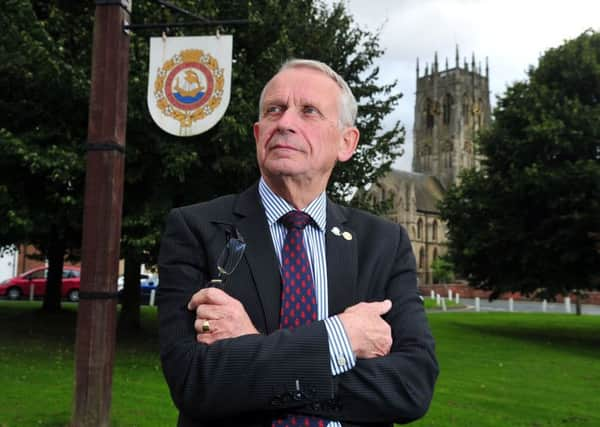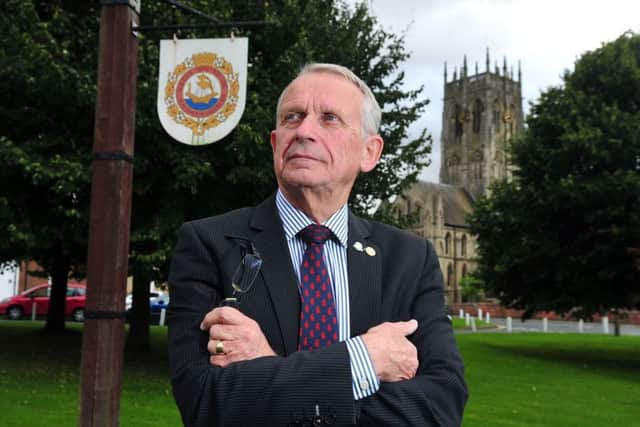Voters reject a revised boundary with Hull


Residents turned out in huge numbers to have their say on the matter and the result of the referendum left little doubt as to the strength of local feeling.
Some 75.27 per cent of eligible voters took part in the referendum held by East Riding of Yorkshire Council, which council leader Councillor Stephen Parnahailed as “unprecedented”.
Advertisement
Hide AdAdvertisement
Hide AdIn total, 51,312 people (96.5 per cent) voted against the boundaries of Hull City Council being extended - changes that would see Anlaby, Anlaby Common, Bilton, Cottingham, Elloughton cum Brough, Hedon, Hessle, Kirk Ella, North Ferriby, Preston, Swanland, Welton and Willerby all fall inside the City’s boundary.


Just 1,887 votes (3.5 per cent) were in favour of the change.
Residents were also asked whether the City Council should be allowed to build on land it owns in the green open spaces separating Hull and those towns and villages - 50,981 (96 per cent) voted ‘no’ and 2,167 (four per cent) voted ‘yes’.
After the count in Haltemprice Centre, Anlaby, Coun Parnaby said: “I’m absolutely delighted with the result and quite humbled to get that return and level of engagement. It’s quite unprecedented.
Advertisement
Hide AdAdvertisement
Hide Ad“It is very clear cut and it proves that people are interested in local affairs. It says they have no desire to be part of the City of Hull and that they are quite content to remain part of the East Riding.”
The boundary between Hull and the East Riding was settled as part of a local government reorganisation in 1996. Proposals put forward by the City Council during that review, for the extension of the City boundary to the west and to the east of the City, were not accepted.
But in March this year, the City Council sought to re-open the debate, resolving to set up a commission of inquiry to examine the case for extending its administrative boundaries.
In April, East Riding of Yorkshire Council unanimously voted to resist any attempts by the City Council to expand its boundaries into the East Riding.
Advertisement
Hide AdAdvertisement
Hide AdIf necessary, the outcome of the referendum will be provided to the Local Government Boundary Commission for England to inform any review they may undertake.
Earlier yesterday, Coun Stephen Brady, leader of Hull City Council, said now was the time for the city to reassert itself as the economic driver for the wider region.
“Hull is a city that is on the up - and we want to seize the opportunities that we now have to build on the growth and investment secured over the past year,” Coun Brady said.
“We want to fulfil our role as a regional capital. To do this, we need to look at the way local government itself is organised in our region. With national policy moving towards giving greater powers and devolved funding to cities at the head of combined authorities, we need to explore how local government needs to change.”
Advertisement
Hide AdAdvertisement
Hide AdHe called on residents across Hull and the East Riding to debate how the two councils can work together, adding: “It is vital that the Government and Northern regions recognise Hull’s role as the Northern Gateway to Continental Europe.”
Coun Parnaby said: “Of course we want to work together but we don’t need to change boundaries. This issue is a silly distraction. We need to spend time and energy in being successful and bringing the jobs to the area that we need.”
Inquiry into combining power
The potential benefits of a Combined Authority on the north bank of the Humber is part of the research being undertaken by the Independent Commission of Inquiry into Effective Local Government in Hull and the East Riding.
Commissioned by Hull City Council and led by local businessman Tom Martin, the Commission will gather evidence and consult with local people and organisations on the structures and collaborative relationships that could be developed between local authorities to ensure Hull and the East Riding can take advantage of future national policy changes and opportunities to maximise investment, jobs and growth across the area.